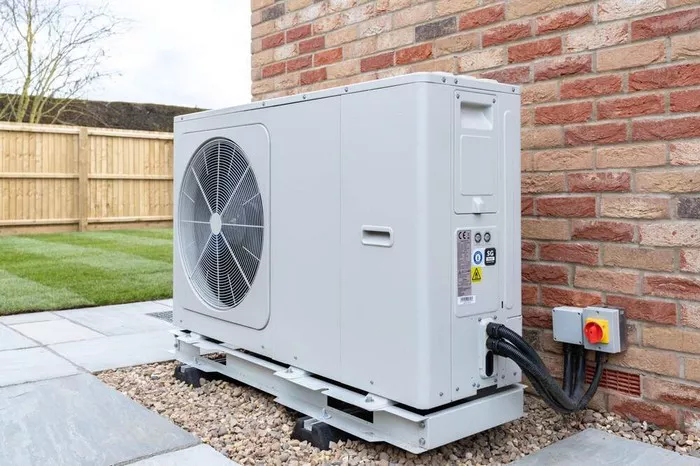A New Hampshire-based company has secured a $1.7 million grant from the U.S. Department of Energy (DOE) to advance a revolutionary compressor technology designed to improve home and commercial building heat pumps. The funding will enable Evari Inc., a Peterborough-based startup, to develop a high-output, low-energy turbocompressor that promises to enhance the efficiency of heating and cooling systems in both residential and commercial settings.
Traditional heat pumps face significant challenges in extreme cold temperatures, struggling to generate enough heat in frigid conditions. Evari’s new technology, however, aims to overcome these limitations by offering much broader temperature efficiency. According to Steve Walker, founder, president, and CEO of Evari, the new compressor system will be capable of operating efficiently in both subzero temperatures and milder climates, making it suitable for regions with harsh winters, like New England.
“The big takeaway of what our technology does is we are much more efficient over a broader temperature range,” Walker explained. “It’s a heat pump that can truly work here in New England, whether you’re talking about Caribou, Maine, or points south all winter. The current technology doesn’t perform as well in extreme cold.”
What Is a Heat Pump?
Heat pumps are devices that use electricity to both heat and cool buildings. They typically consist of a compressor, heat exchangers, and an expansion valve, with the compressor being the central component. While traditional systems struggle in very low temperatures, mini-split systems offer a more flexible, ductless solution for heating and cooling air in a single room or space.
Evari’s innovation lies in its turbocompressor technology, which not only extends the operating temperature range but does so using less energy and fewer pollutants. The company claims that its system will make heat pumps up to 50% more energy efficient.
Environmentally Friendly and Energy-Efficient
In addition to its energy efficiency, Evari’s technology also tackles environmental concerns. The new system eliminates the use of highly polluting refrigerants that are common in existing heat pump models. Instead, it uses natural refrigerants, a crucial step in reducing the environmental impact of heat pump systems.
Walker emphasized that while natural refrigerants are still used, they present a more sustainable option compared to traditional oil-based refrigerants, which are more challenging to use in current technologies.
DOE Grant Supports Innovation
The $1.7 million grant is part of the U.S. Department of Energy’s Buildings Energy Efficiency Frontiers and Innovation Technologies (BENEFIT) program. This initiative is designed to promote technologies that improve the energy efficiency of buildings and contribute to the decarbonization of the sector. Nationally, the program has made $30 million in funding available to support innovation in building systems technology.
U.S. Senator Jeanne Shaheen of New Hampshire expressed strong support for the grant, highlighting its potential to reduce energy costs and emissions. “Installing low-cost, energy-efficient technologies in homes and businesses can reduce costs and help us reach our climate goals,” said Shaheen. “I’m delighted to see federal funding headed to a New Hampshire business to continue its research and development of innovative heat pump technology that will save Granite Staters money on their energy bills, all while reducing carbon emissions and building a more resilient electric grid.”
Seed Funding Accelerates Development
In addition to the DOE grant, Evari secured $7.5 million in seed financing earlier this year. This round of funding, led by Clean Energy Ventures, includes support from Clean Energy Venture Group (CEVG) and Farvatn Venture.
“This technology represents a major leap forward in the design and manufacturing efficiency of affordable compressors,” said Temple Fennell, co-founder and managing partner at Clean Energy Ventures. “While turbocompressors have historically been reserved for high-cost applications, Evari is making them accessible for widespread use.”
The company’s compressor technology has its origins in the aerospace industry, where it has been used in space exploration for over 40 years. Jonathan Bass, co-founder and director of operations at Evari, explained that the technology was initially developed by NASA and has been adapted for low-cost, high-volume manufacturing.
One key application of the technology in space is its use in the Hubble Space Telescope, where it helps maintain temperature stability.
Addressing the Global Demand for Heat Pumps
Heat pumps are responsible for approximately 20% of global electricity consumption, a figure expected to grow as demand for energy-efficient systems increases. As Walker pointed out, maximizing compressor technology to make heat pumps more efficient and environmentally friendly is crucial. “This is not a small thing, and it’s growing,” he said. “The only thing growing faster than heat pumps is computing and servers.”
Evari’s turbocompressor technology is designed to be more efficient, quieter, and vibration-free compared to current systems, which often struggle to provide enough heating capacity in extremely cold temperatures. According to Bass, the performance of existing compressors diminishes as the temperature lift increases.
“If you’re heating your home and the outside temperature is zero degrees, your temperature lift is 70 degrees,” Bass explained. “Current compressors just can’t provide the necessary lift for such extreme conditions.”
Future Plans
While the technology shows great promise, Evari has not yet set a timeline for mass production. The company is continuing its research and development efforts with the goal of bringing this advanced compressor technology to the broader market in the near future.
With its combination of energy efficiency, environmental benefits, and space-age origins, Evari’s heat pump technology represents a significant step forward in the quest for sustainable, cost-effective heating and cooling solutions for homes and businesses worldwide.
Related topics:


